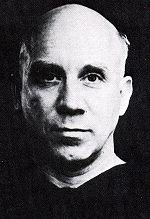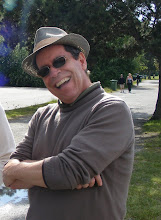
Merton writes... "When I came down to the monastery from the woods this afternoon one of the novices met me in the door of the novitiate and told me that President Kennedy had been shot and had died, in Dallas, Texas, an hour and a half before. At first I could not believe it. I told him it must be an irresponsible rumour. No, it was quite true... The whole thing leaves one sick. Sick at the madness, the useless ferocity, the aimless violence that marks so much of the life of this country. No matter who killed the President or what his motives were, this act was simply one more in a whole long series of senseless, brutal, stupid, pathological killings." CGB pp.343-44
 In grief work with individuals and families we often refer to these persisting conditions as "unfinished business". The reality of this unresolved grief and unfinished business is reflected in the ongoing search for truthful answers to the questions of why Kennedy was killed, and by whom. The latest contribution to this work is a book by Catholic peace activist, and Thomas Merton friend, James Douglass.
In grief work with individuals and families we often refer to these persisting conditions as "unfinished business". The reality of this unresolved grief and unfinished business is reflected in the ongoing search for truthful answers to the questions of why Kennedy was killed, and by whom. The latest contribution to this work is a book by Catholic peace activist, and Thomas Merton friend, James Douglass.JFK and the Unspeakable:
In his 2008 book, "JFK and The Unspeakable: Why He Died and Why it Matters" James Douglass revisits the Kennedy Presidency in search of his own answers to these unresolved questions.  He examines President Kennedy's response to the CIA's "Bay of Pigs" invasion of Cuba, the October 1962 "Cuban Missile Crisis", the Vietnam War, and the Nuclear Arms Race and the resultant relationship with the Joint Chiefs of Staff, the CIA, and the corporate leaders in the American Military-Industrial Complex.
He examines President Kennedy's response to the CIA's "Bay of Pigs" invasion of Cuba, the October 1962 "Cuban Missile Crisis", the Vietnam War, and the Nuclear Arms Race and the resultant relationship with the Joint Chiefs of Staff, the CIA, and the corporate leaders in the American Military-Industrial Complex.
Douglass sees a President who is undergoing a significant personal "turning" towards peace on a number of fronts and who has the courage to resist the pressure towards greater military escalation exerted by the military establishment. Kennedy is charting a course towards nuclear disarmament, disengagement in Vietnam, dialogue with Cuba, and peaceful coexistence with Russia. This turning towards peace was enough, in Douglass's view, to mark him for assassination.

Thomas Merton - A Guide and Witness
 Thomas Merton figures prominently in Douglass's work. Douglass poses the reader's question... "The reader may wonder why the perspective of a contemplative monk, Thomas Merton, figures so prominently in a book about the JFK assassination. Why is the Trappist monk Thomas Merton my Virgil on this pilgrimage?"
Thomas Merton figures prominently in Douglass's work. Douglass poses the reader's question... "The reader may wonder why the perspective of a contemplative monk, Thomas Merton, figures so prominently in a book about the JFK assassination. Why is the Trappist monk Thomas Merton my Virgil on this pilgrimage?"
And responds... "Einstein said, "The unleashed power of the atom has changed everything save our modes of thinking, and we thus drift towards unparalleled catastrophes." Unless we turn our thinking (and acting) away from war, we humans have had our day. Thomas Merton said it again and again at the height of the Cold War, as did Martin Luther King, and John F. Kennedy. What the contemplative Thomas Merton brought to that fundamental truth of our nuclear age was an ontology of nonviolence, a Gandhian vision of reality that can transform the world as we know it. The contemplative knows this transforming truth from experience." JFKU p.xi
Douglas further writes... "Thomas Merton has been my guide through a story of deepening dialogue, assassination, and a hoped-for resurrection. While Kennedy is the subject of this story, Merton is its first witness and chorus from his unique perspective in a monastery in the hills of Kentucky." JFKU p.xi
"The Unspeakable"
 The concept of "The Unspeakable" is drawn from Merton's "prologue" to his book "Raids on the Unspeakable". Thomas Merton writes... "The Unspeakable. What is this. Surely, an eschatological image. It is the void we encounter, you and I, underlying the announced programs, the good intentions, the unexampled and universal aspirations for the best of all possible worlds. It is the void that contradicts everything that is spoken even before the words are said; the void gets into the language of public and official declarations at the very moment when they are pronounced, and makes them ring dead with the hollowness of the abyss... One of the awful facts of our age is the evidence that it is stricken indeed, stricken to the very core by the presence of the Unspeakable." ROU pp.4-5
The concept of "The Unspeakable" is drawn from Merton's "prologue" to his book "Raids on the Unspeakable". Thomas Merton writes... "The Unspeakable. What is this. Surely, an eschatological image. It is the void we encounter, you and I, underlying the announced programs, the good intentions, the unexampled and universal aspirations for the best of all possible worlds. It is the void that contradicts everything that is spoken even before the words are said; the void gets into the language of public and official declarations at the very moment when they are pronounced, and makes them ring dead with the hollowness of the abyss... One of the awful facts of our age is the evidence that it is stricken indeed, stricken to the very core by the presence of the Unspeakable." ROU pp.4-5
James Douglass sees "The Unspeakable" as a kind of "systemic evil" that defies speech. He describes it as "the vacuum of responsibility and compassion" that allows us to deny our complicity in, and to evade our accountability for, the great horrors that are perpetrated in the name of the national interest.
__________________
Whew! When I started this pilgrimage with Merton I had no idea of where it would lead. I sure didn't expect to be drawn into ongoing speculation and analysis in relation to the JFK assassination and various conspiracy theories related to it! But there you have it. You can pick up Douglass's book if you want to learn more of his perspective.
What is made clear to me from Douglass's book, from what I've read so far, is that the search for truth and reconciliation in relation to the "unfinished business" of Kennedy's assassination, and many of the traumatic events of the sixties, is far from over...
Remembering and reflecting... Rob
"A man does what he must - in spite of personal consequences, in spite of obstacles and dangers and pressures - and that is the basis of all human morality." John F. Kennedy




No comments:
Post a Comment